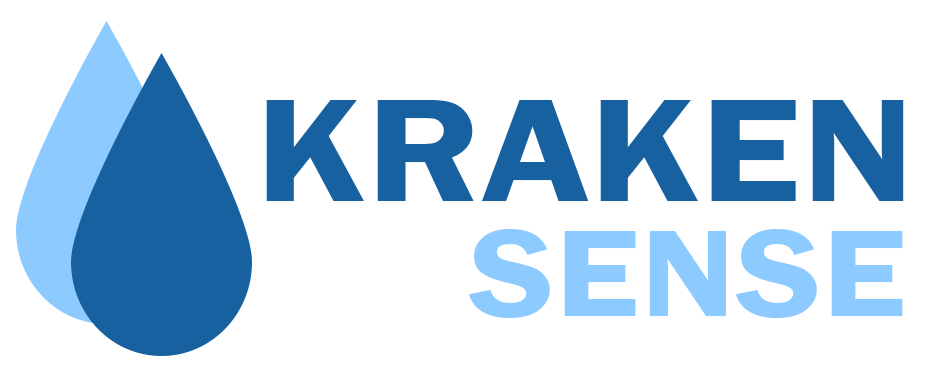Kraken Sense for Detecting Extended Beta-Lactam Resistance (blaCTX-M gene) in Wastewater Surveillance
Antibiotic resistance is one of the fastest-growing threats to global health. As more bacteria evolve to evade our most powerful drugs, infections that were once easily treatable are becoming more dangerous, and sometimes untreatable. Among the most concerning forms of resistance are extended-spectrum beta-lactamases (ESBLs), enzymes that allow bacteria to break down and resist a wide range of antibiotics, including penicillins and cephalosporins. The blaCTX-M gene is a well-known genetic marker for ESBL production, and it has been spreading rapidly across both clinical and community environments.
Kraken Sense enables early detection of blaCTX-M in wastewater systems, offering a powerful surveillance tool for tracking antimicrobial resistance (AMR) across entire populations before infections become widespread. By identifying the presence of this gene in wastewater, public health agencies can uncover hidden reservoirs of resistance and act proactively to protect communities.
Understanding the Resistance Threat
The blaCTX-M gene is commonly found in Escherichia coli and Klebsiella pneumoniae, two bacteria responsible for serious infections like urinary tract infections, bloodstream infections, and pneumonia. What makes blaCTX-M particularly dangerous is its mobility: it is often carried on plasmids, small DNA molecules that can transfer between bacterial species. This means resistance can spread not only between people but between bacterial strains, rapidly increasing the number of resistant infections.
Once these bacteria enter hospitals or long-term care facilities, they can be especially hard to control. Infections caused by ESBL-producing bacteria often require more toxic or expensive antibiotics, and treatment failures are more common. Globally, resistance to third-generation cephalosporins due to blaCTX-M is increasing at an alarming rate, especially in regions with limited antibiotic regulation or poor sanitation infrastructure.
Why Wastewater Surveillance Matters
Most antimicrobial resistance (AMR) surveillance efforts focus on clinical settings, analyzing infections after patients become ill. But by that point, the bacteria have already spread. Wastewater surveillance offers a more proactive approach, allowing researchers to detect resistance trends across large populations, even in people who aren’t showing symptoms.
Human waste carries genetic material from the bacteria in our bodies. When those bacteria include ESBL producers, their resistance genes end up in community wastewater. Monitoring these genetic markers allows public health agencies to:
Detect emerging resistance hotspots
Track the effectiveness of antibiotic stewardship programs
Monitor the impact of policy changes (e.g., prescription limits or hospital guidelines)
Identify areas that may need targeted education, sanitation upgrades, or clinical testing
This approach is especially valuable in low-resource settings, where traditional diagnostic infrastructure may be limited but wastewater testing is feasible.
Kraken Sense: A Real-Time AMR Detection Tool
Kraken Sense brings speed and precision to wastewater surveillance. Its platform continuously collects water samples from hospitals, neighborhoods, or municipal treatment plants and uses qPCR technology to screen for resistance genes. Unlike conventional lab methods, which can take days or weeks, Kraken Sense delivers results in under 60 minutes.
Key Benefits:
Early Warning System: Rapid detection of blaCTX-M allows public health officials to act before resistance becomes clinically visible
Data-Driven Response: Kraken Sense supports outbreak prevention by providing real-time data to antibiotic stewardship teams
Scalable Deployment: The system can be installed at multiple locations, from single healthcare facilities to entire cities
Remote Monitoring: Facility managers and health agencies receive automated alerts and live dashboard updates
By integrating Kraken Sense into existing surveillance programs, decision-makers gain a clearer, faster picture of how antimicrobial resistance is evolving in their regions.
Applications in Healthcare and Beyond
Hospitals and long-term care facilities are common sites of ESBL transmission. Kraken Sense allows these institutions to monitor their wastewater for signs of blaCTX-M, giving infection control teams valuable lead time to implement containment measures. But the platform’s utility doesn’t end there:
Municipal Wastewater Plants: Detect resistance trends across cities or counties
University Campuses & Prisons: Monitor dense, high-contact populations
Livestock and Agricultural Runoff: Track resistance emerging from veterinary antibiotic use
Global Health Surveillance: Identify transnational trends through airport or seaport wastewater
This type of broad-based monitoring aligns with the One Health approach, which recognizes that human, animal, and environmental health are deeply interconnected.
A Smarter Future for Fighting AMR
As AMR continues to grow, so does the need for smarter surveillance. Traditional approaches can no longer keep pace with how quickly resistance genes spread and evolve. Technologies like Kraken Sense offer a modern solution, one that turns wastewater from a waste product into a rich source of public health intelligence.
By targeting genes like blaCTX-M in real time, Kraken Sense doesn’t just provide data; it empowers action. It helps public health teams stay ahead of outbreaks, tailor interventions to where they’re needed most, and safeguard the effectiveness of our remaining antibiotics.
Conclusion
The rise of blaCTX-M and other resistance genes is a silent pandemic, one that threatens to undo decades of medical progress. But with tools like Kraken Sense, we can bring that threat into focus before it reaches the clinic. Wastewater surveillance is no longer just a research concept, it’s a frontline defense in the battle against antimicrobial resistance.
With rapid detection, real-time alerts, and wide-area monitoring, Kraken Sense provides public health systems with the intelligence they need to take early, informed, and effective action. As antibiotic resistance continues to challenge global health systems, Kraken Sense is helping turn the tide, one sample at a time.
